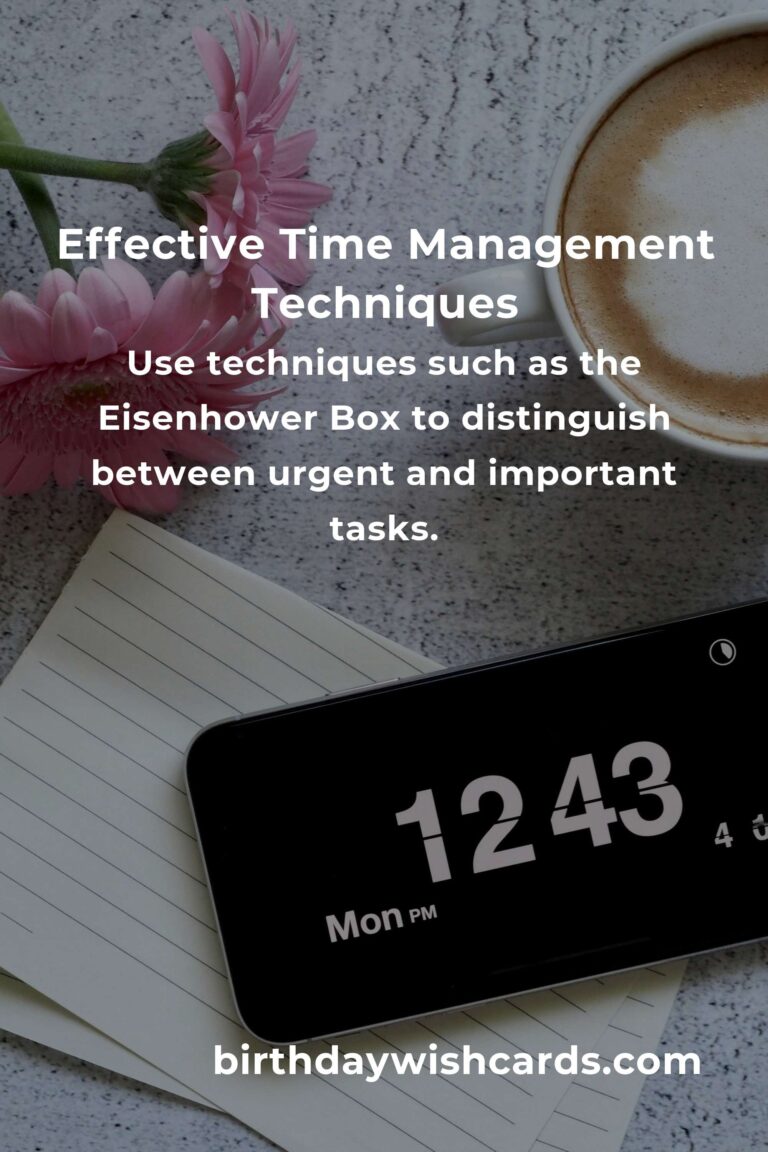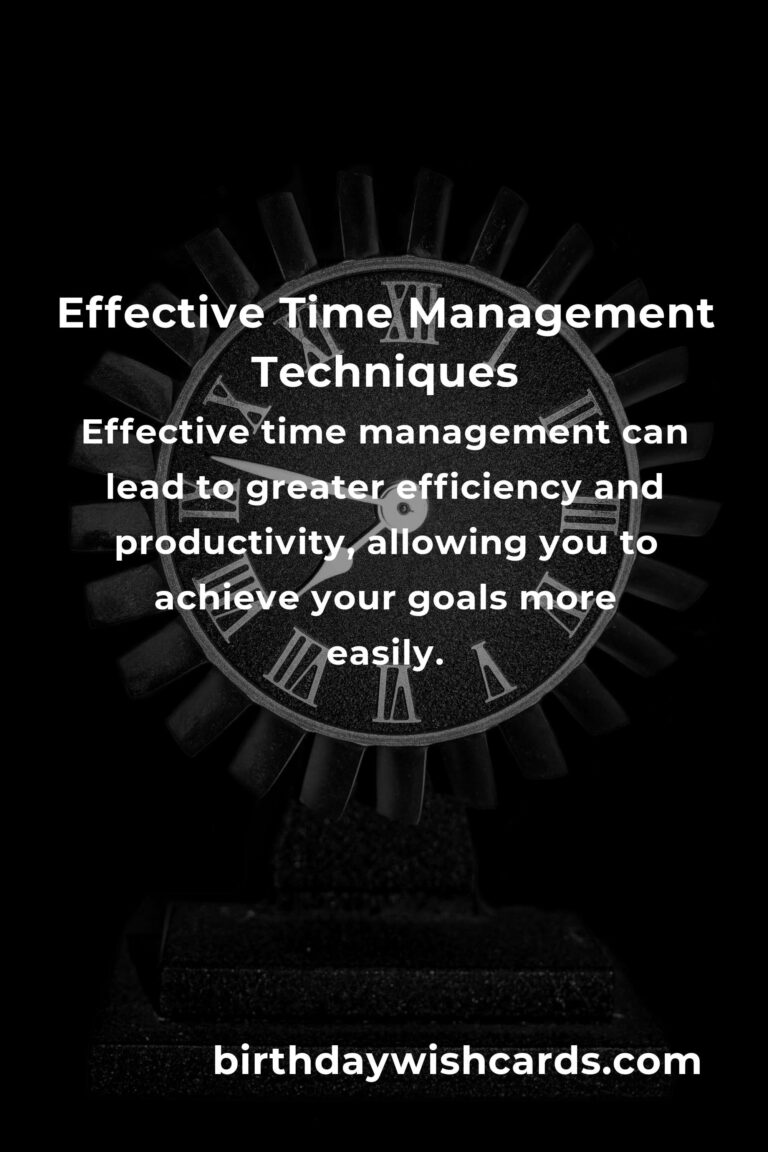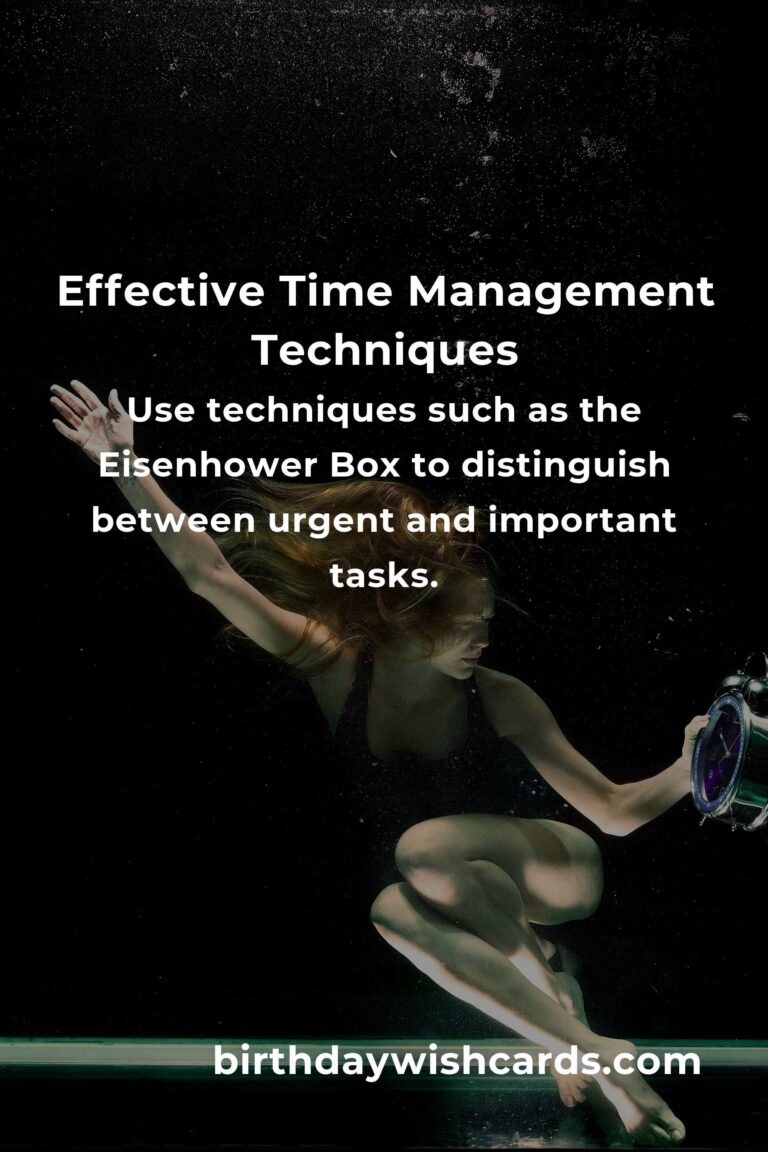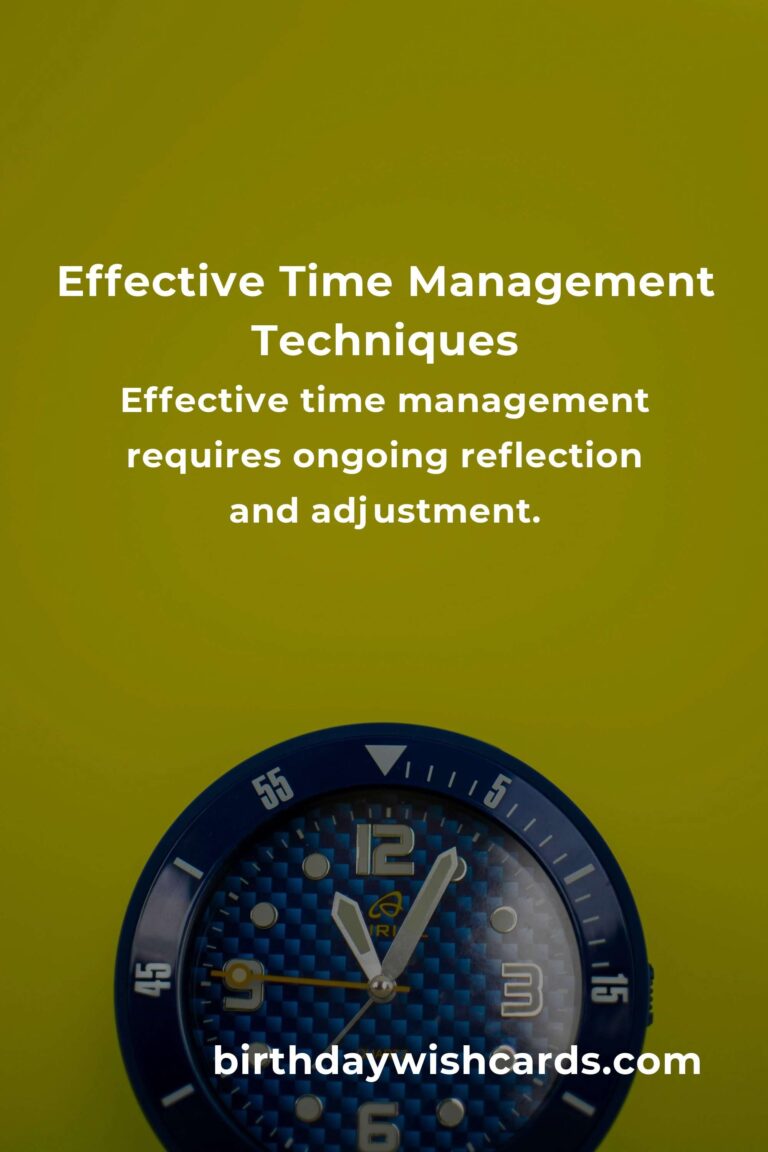
Time management is a crucial skill that can significantly impact both your professional and personal life. By mastering the art of time management, you can increase productivity, reduce stress, and create more opportunities for success. In this article, we will explore expert advice on how to manage your time efficiently and effectively.
Understanding the Importance of Time Management
Time management is not just about scheduling your day; it’s about making conscious decisions that allow you to maximize the time available to you. It involves setting priorities, organizing tasks, and using your time wisely. Effective time management can lead to greater efficiency and productivity, allowing you to achieve your goals more easily.
Set Clear Goals
One of the fundamental aspects of time management is setting clear, achievable goals. These goals provide direction and motivation, helping you to focus on what is truly important. Consider using the SMART criteria to set goals that are Specific, Measurable, Achievable, Relevant, and Time-bound.
Prioritize Your Tasks
Not all tasks are created equal. Some tasks have a higher priority than others, and it’s essential to recognize which activities require immediate attention. Use techniques such as the Eisenhower Box to distinguish between urgent and important tasks. This can help you focus on what truly matters and avoid getting sidetracked by less critical activities.
Create a Daily Schedule
Having a daily schedule can dramatically improve your time management. Plan your day by listing tasks in order of priority and allocating specific time slots for each activity. This approach not only keeps you organized but also helps prevent procrastination.
Learn to Say No
One of the biggest challenges in time management is learning to say no. Overcommitting can lead to stress and burnout. It’s important to recognize your limits and decline tasks or activities that do not align with your goals or priorities. Remember, saying no is a powerful tool that can free up time for what truly matters.
Use Technology Wisely
Technology can be both a boon and a bane for time management. Use tools and apps designed to enhance productivity, such as calendars, task managers, and reminder apps. However, be mindful of the potential for technology to become a distraction. Limit time spent on social media and other non-essential activities.
Take Regular Breaks
Taking regular breaks is crucial for maintaining focus and energy levels. The Pomodoro Technique, for example, involves working for a set period (usually 25 minutes) followed by a short break. This method can help improve concentration and prevent burnout.
Reflect and Adjust
Effective time management requires ongoing reflection and adjustment. Regularly review your goals and priorities, assess your progress, and make necessary changes. This ensures that your time management strategies remain aligned with your evolving needs and objectives.
In conclusion, mastering time management is a continuous process that involves setting clear goals, prioritizing tasks, and using your time efficiently. By implementing these expert insights, you can enhance your productivity and achieve greater success in all areas of your life.
Time management is a crucial skill that can significantly impact both your professional and personal life. Effective time management can lead to greater efficiency and productivity, allowing you to achieve your goals more easily. Set clear, achievable goals using the SMART criteria to provide direction and motivation. Use techniques such as the Eisenhower Box to distinguish between urgent and important tasks. Having a daily schedule can dramatically improve your time management. One of the biggest challenges in time management is learning to say no. Technology can be both a boon and a bane for time management. Taking regular breaks is crucial for maintaining focus and energy levels. Effective time management requires ongoing reflection and adjustment.
#TimeManagement #Productivity #GoalSetting #Efficiency #WorkLifeBalance













